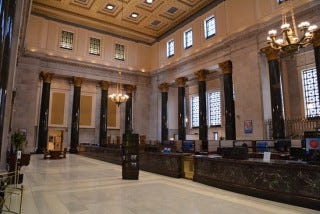A Memory of Banking Before Computer Networks
I’ll talk about retail banking in 1980 when I was a teller.
I’ll talk about retail banking in 1980 when I was a teller.

First of all, banks opened at 10am and closed at 3pm, and they were never open on the weekend. If you needed cash only a very few banks had ATMs and there were no ATM networks to speak of. The protocols for Cirrus and the others had yet to be invented and adopted. Also, if you traveled, there wo…
Keep reading with a 7-day free trial
Subscribe to Stoic Observations to keep reading this post and get 7 days of free access to the full post archives.


